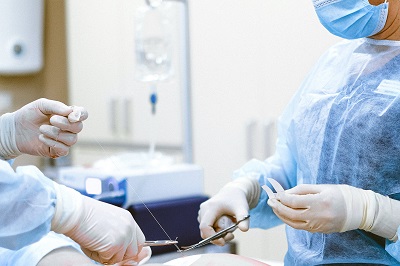Preparing for FDA certification (FDA clearance or approval) for a medical device involves gathering specific materials and preparing detailed application documents. Here's a comprehensive guide on the materials required and how to prepare application documents effectively:
Materials Required for FDA Certification
Device Description and Specifications:
- Detailed description of the device, including its intended use, design, components, and materials used in construction.
Substantial Equivalence (for 510(k) Submission):
- Identification of a legally marketed predicate device and documentation demonstrating substantial equivalence in terms of intended use, technological characteristics, and performance.
Performance Data:
- Results from testing and studies demonstrating the device's safety, effectiveness, and performance characteristics.
- Bench testing data, animal testing data, and any relevant clinical data (if applicable).
Clinical Data (for PMA Submission):
- Comprehensive clinical study data demonstrating the device's safety and effectiveness in its intended patient population (typically required for higher-risk devices under PMA).
Labeling:
- Draft labeling that complies with FDA requirements, including indications for use, contraindications, warnings, precautions, and instructions for use.
- Ensure labeling includes appropriate symbols, format, and language for user comprehension.
Manufacturing Information:
- Detailed information on the device's manufacturing processes, quality controls, and compliance with FDA Quality System Regulation (QSR) requirements (21 CFR Part 820).
Quality System Documentation:
- Documentation demonstrating compliance with FDA QSR requirements, including procedures, records, and quality assurance measures related to device manufacturing.
Administrative Documents:
- Completed FDA application forms and administrative documents, such as a cover letter, establishment registration, device listing, and any required certifications or declarations.
How to Prepare Application Documents
Gather and Organize Information:
- Collect all necessary information, including device specifications, test results, clinical data, manufacturing processes, and quality system documentation.
- Ensure all documents are up-to-date, accurate, and well-organized for easy reference during the application preparation.
Prepare Device Description:
- Draft a detailed description of the device, covering its design, intended use, technological features, and materials used in construction.
- Include information on any accessories or components that are integral to the device's function.
Substantial Equivalence Documentation (for 510(k)):
- Identify a predicate device and prepare documentation comparing your device to the predicate in terms of intended use, design, performance, and materials.
- Provide a detailed rationale for why your device is substantially equivalent to the predicate device.
Performance Data Compilation:
- Compile all performance data from bench testing, animal studies, and clinical trials (if applicable).
- Organize data into clear tables, graphs, and summaries that demonstrate the device's safety, effectiveness, and performance characteristics.
Clinical Data Compilation (for PMA):
- Organize and summarize comprehensive clinical study data, including study protocols, results, adverse events, and statistical analyses.
- Ensure data supports the device's safety and effectiveness in its intended patient population.
Labeling Preparation:
- Develop draft labeling that meets FDA requirements, including all necessary elements such as indications for use, warnings, precautions, and instructions for use.
- Ensure labeling is clear, concise, and designed to be easily understood by users.
Manufacturing and Quality System Documentation:
- Document the device's manufacturing processes, including procedures for assembly, testing, and quality control.
- Provide evidence of compliance with FDA QSR requirements, including documentation of quality system procedures, records, and audits.
Compile Administrative Documents:
- Complete all required FDA forms and administrative documents, ensuring accuracy and completeness.
- Include any additional certifications, declarations, or attestations required by FDA regulations.
Review and Finalize:
- Conduct a thorough review of all application documents for accuracy, consistency, and compliance with FDA requirements.
- Ensure all supporting documentation is properly referenced and organized according to FDA guidelines.
Submit Application to FDA:
- Submit the completed application electronically through the FDA's online portal (e.g., Electronic Submission Gateway (ESG)) or via mail, following the specified submission instructions.
- Monitor for confirmation of receipt and follow up promptly on any requests for additional information or clarification from the FDA.

Contact Us:
Whatsapp or Wechat:+86 15816864648;email address:hito.lin@grzan.cn
.png)
.jpg)

.png)

.png)